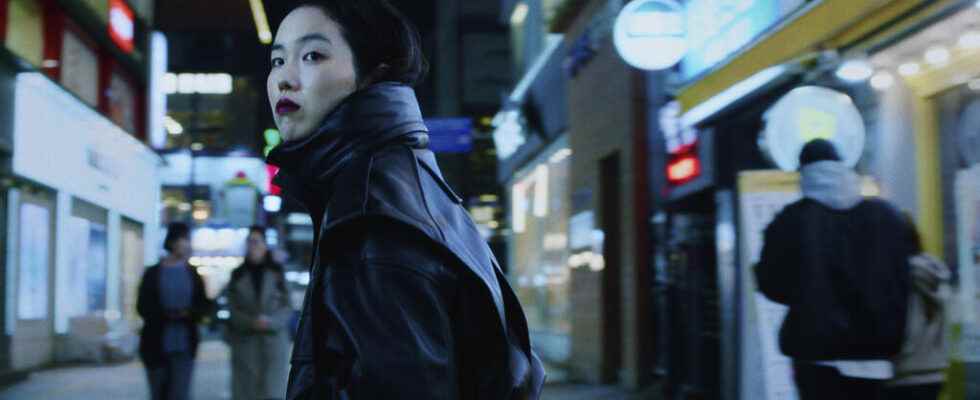It is the vibrant story of a young woman once adopted in Korea by French parents and who suddenly finds herself, in spite of herself, in search of her origins. “Return to Seoul”, on display in theaters in France from January 25, is a painful and liberating story, intelligently produced and composed by the Franco-Cambodian director Davy Chou, and embodied in an incredibly dense way by Ji -min Park, a real revelation in her first role as an actress.
Everything seems simple. A girl abandoned in Korea by her parents and adopted in France one day sets out to find her roots. Except that the fate of the more than 200,000 Korean children adopted after the end of the Korean War in 1953 is not the story told in Return to Seoul. In his film, Davy Chou follows the character of Freddie over several years. And this young woman who seems so sure of herself returns at the age of 25 for the first time to the country where she was born. But she chooses this destination at the last moment, by chance, at the airport, when her original flight is canceled and a flight to Seoul is available.
” She leaves for two weeks on vacation, without ulterior motives, without ideas in her head, and especially not with the idea of meeting her biological parents.. It’s not at all what she’s looking for, explains Davy Chou his screenplay. However, after a few days, she finds herself face to face with her biological father and his family. At this point, things take a rather surprising turn, and a little different from what is usually expected of a film about adoption. »
Ji-min Park makes the difference
It is also Ji-min Park who makes the difference. With her beauty that ignores herself, but which bursts the screen, she gives birth to a complex character, ungrateful and touching, vulnerable and angry, mysterious and violent, full of contradictions. ” Sometimes you just had to put the camera on your face so that the spectator could have access to the interiority and the mystery of feelings. »
Like her character, Ji-min Park was born in Seoul. She landed in Paris at the age of 8. Drawing from her own life, she found many similarities with her role as Freddie, to the point of sometimes actually living her character: “ What surprised me the most was when I had that moment of grace, the happy medium between the character and me. When I realized that I was playing things! And that I wasn’t just me. It was very strong. There were times when I thought to myself : oh, I’m playing ! »
family stories
Davy Chou also drew on his own experiences to write the screenplay. The trigger for Return to Seoul was the fate reserved for one of Davy Chou’s best friends. She had experienced a similar story and had taken the director with her to meet her biological father. But behind this tragedy still another resonates, in connection with the Cambodian origins of Davy Chou. Although, unlike his previous film on Cambodian youth, Diamond Island, this time he did not explore the country of his ancestors. Because, as the grandson of Van Chann, one of the greatest producers in the history of cinema in Cambodia, Dayv Chou today embodies the hope of a revival of Cambodian cinema. And he himself had the painful experience of a radical break forever with his family history disrupted by the Khmer Rouge: ” The fact that my parents left for France, and that a large part of our family died during the genocide perpetrated by the Khmer Rouge, is something that I also feel very deeply. “.
It’s not a return to the roots
For this, for him, Return to Seoul is not a film like any other on the roots. ” Me, for example, at the age of 25, I went to Cambodia for the first time, the country where my parents were born. A country I knew nothing about. All my friends told me : “You are going back to the roots”. I really rejected that and said “No, it’s not exactly that”. People put my trip to Cambodia in a really predefined box. On the contrary, I made the film in resistance to certain clichés of the trip back to basics. With all that one can imagine of melancholy, nostalgia, self-revelation. Things are much more complex, much more violent at times, complicated too and require much more time. That’s what interested me. »
